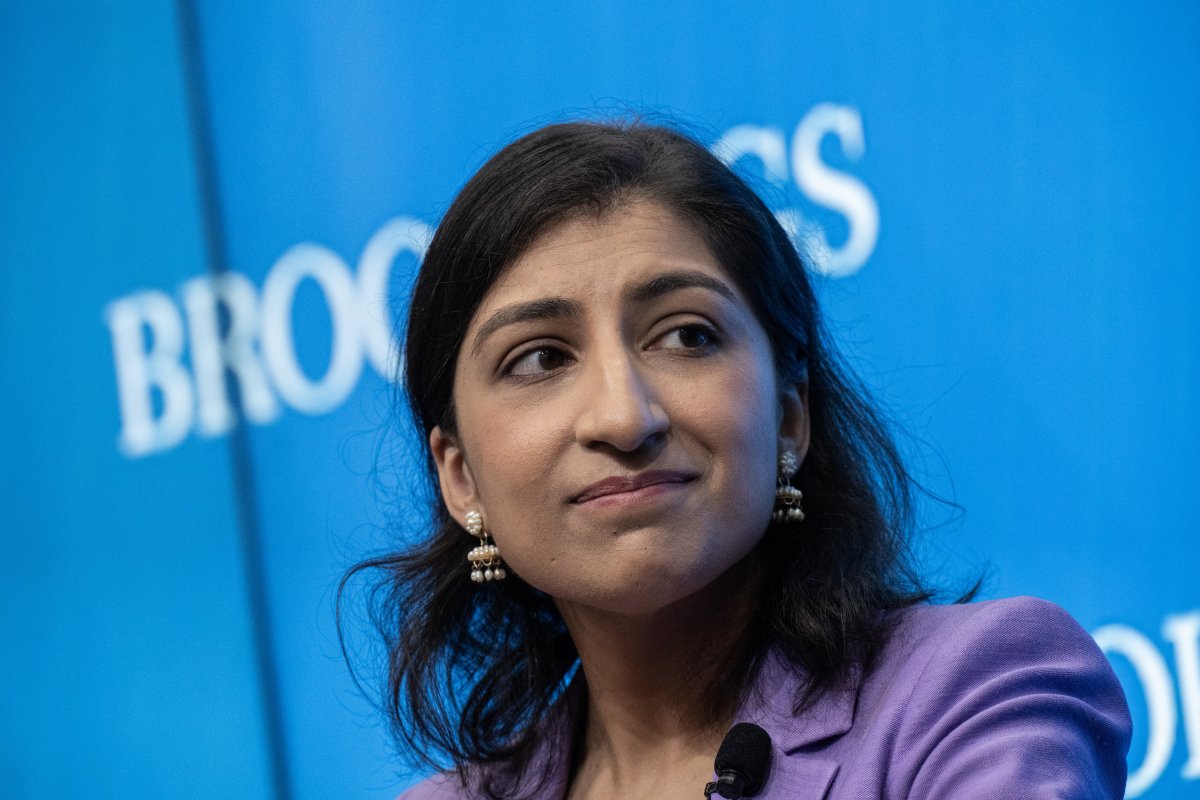The Biden administration has made antitrust enforcement a priority. It has brought actions against large airline companies like Jet Blue and, yes, numerous cases against Big Tech. Many of the Biden administration's antitrust efforts have been met with strong conservative support. So much so that it inspired the Wall Street Journal to introduce a new term into the antitrust nomenclature: "Khanservatives."
The ascription refers to conservatives who support Federal Trade Commission (FTC) Chair Lina Khan's relentless pursuit to revert antitrust enforcement to a more trust-busting style. Libertarian Big Tech advocates use the term "Khanservative" as an epithet to treat all conservative support for antitrust enforcement as unprincipled.
That view is categorically wrong.
Republicans have a long tradition of pushing back on concentrated authorities. President Theodore Roosevelt sought to break up monopolies. President Ronald Reagan's Department of Justice broke up AT&T's monopoly over interstate telecommunications networks. Judge Robert Bork supported the Justice Department's antitrust suit against Microsoft in the 1990s. And the Trump administration initiated antitrust probes into Apple and Google.
Another flaw in the criticism of anti-monopoly conservatives is that the cases garnering most conservative support in the Biden administration were not initiated by Chair Khan, but by the Justice Department. And that makes sense. The department's approach follows a more traditional path towards antitrust enforcement by adhering to a consumer welfare framework.
The Justice Department's cases against Apple and Google are prime examples. The department makes strong arguments that both Apple and Google have extraordinary market power and abuse that power in their respective markets—arguments that recall its enforcement against Microsoft in the 1990s.
Take the department's Google Search case, which the Trump administration initiated. Trump's Attorney General Bill Barr, who brought the case, said that "the antitrust case against Google is a Republican project." There're also clear-cut monopoly abuse issues here. Google stands accused of hiding articles, blocking political emails it doesn't favor, and killing any innovation in the search market that threatens its dominance.

In addition, conservatives at the Claremont Institute and the Heritage Foundation have rallied in support of the case against Apple. As Senator Mike Lee (R-Utah) points out, the Justice Department's Apple case builds on an investigation that started under the Trump administration. It charges Apple with killing competitors that challenge its dominance. Just ask Beeper Mini, which competed directly with Apple's iMessage, or the 343,000 apps the company kicked off its App Store with nary an explanation other than that they may violate user privacy—all while listing TikTok as an "essential" app, mind you. It also forces monopoly rents to the tune of 30 percent for merely existing on its App Store—the only store Apple allows on its devices.
Worse, Apple and Google engage in cartel-like agreements, like making Google Search Safari's default and Google's Gemini the iPhone's primary AI tool, to ensure both can lock in consumers and maintain their respective monopolies without directly competing.
Both cases fare well with conservatives in part because they have consumer-welfare-standard-approved remedies. For example, in the Google case, browsers would have to allow consumers (not Google) to choose which search engine they want as its default. In the Apple case, the obvious solution would be to let consumers—not Apple—choose what apps they want on their devices. This means that, even if Apple wanted to make deals with Google's Gemini, consumers would not be limited to Apple's offering only. They would be free to download third-party apps and even app stores to compete directly with Apple's (or rather Google's) AI applications.
Support for these actions do not imply support for what Khan's FTC is doing in any way, because the its approach is distinct from that of the Justice Department. Generally, the FTC has sought to prop up competitors as opposed to enhancing consumer welfare. That approach would prefer 20 companies offering poor services to 5 companies aggressively competing and innovating. The former is not something conservatives have ever supported.
Worse, the FTC's approach appears to be less strategic and more aimed for publicity. Suing Microsoft and Meta might make the headlines, but the massive losses in those cases hardly helped advance antitrust enforcement. Neither has the much-ballyhooed case against Amazon, which experts have noted isn't standing on solid legal footing.
And while the Justice Department has done the hard work of throughly investigating companies before moving forward, the FTC hasn't even finished its promised report on the privacy practices of the largest tech companies—a report almost two years overdue.
In sum, yes, principled conservatives support strong antitrust enforcement. But you don't need to be a Khanservative to support the bipartisan work of the Justice Department.
Joel Thayer is president of the Digital Progress Institute and an attorney based in Washington, D.C.
The views expressed in this article are the writer's own.
Uncommon Knowledge
Newsweek is committed to challenging conventional wisdom and finding connections in the search for common ground.
Newsweek is committed to challenging conventional wisdom and finding connections in the search for common ground.
About the writer
To read how Newsweek uses AI as a newsroom tool, Click here.








